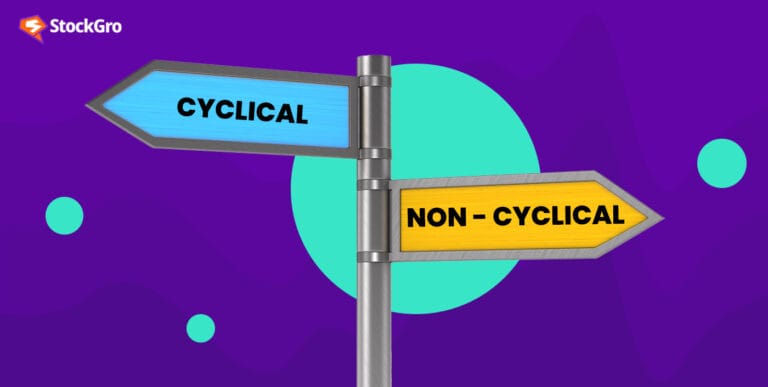
The stock market is accessible to various groups of people today. From retail investors to High Networth Individuals (HNIs) to institutional investors, the stock market has seen all kinds of people participating in trading and investing activities.
The term HNI indicates that these individuals have a high income. This typically means their investment values are high, too.
Such massive investments come under the concepts of block and bulk deals.
Read further to know what they mean and how they are different from each other.
What is a block deal?
A block deal is a single trade involving more than 5,00,000 shares or having a trade value of more than ₹10 crores.
These are high-value deals on the stock exchange occurring in specific time slots during the day.
Since these deals usually involve large investors, the details are unavailable to the public.
You may also like: A comparative study of FIIs and DIIs in financial markets
Features of block deals:
- Trades are of high value. They satisfy either of the two conditions regarding the quantity of shares or the value of the trade.
- The trades occur during specific time slots called block deal windows.
BSE window: 35 minutes from 9:15 a.m. to 9:50 a.m.
NSE window: 2 sessions – 8:45 a.m. to 9:00 a.m. and 2:05 p.m. to 2:20 p.m. - There is no transparency regarding block deals. These trades are not published on the regular sections of the stock exchange.
- Block deals that fail to execute within the block deal window get cancelled. Traders must book fresh trades in the next window.
- Block reference price – Determines the share prices in block deals.
Morning slot: Previous day’s closing price or the previous day’s closing price +/- 1% to adjust for any changes that may have happened.
Afternoon slot: Volume-weighted average of the market price of shares from 1:45 p.m. to 2 p.m.
What is a bulk deal?
Bulk deals are deals by a single trader involving a minimum of 0.5% of the total number of shares listed by a company.
Bulk deals are mostly entered into by institutional investors like mutual funds.
The execution of bulk deals can happen through a single transaction or multiple transactions, but it has to involve a single trader.
Also Read: What is the role of FIIs in the Indian stock market?
Features of bulk deals:
- The shares involved should be equal to or more than 0.5% of the total number of shares listed by the company on one stock exchange.
- Bulk deals occur during usual trading hours and do not have any separate trading window.
- If a bulk deal qualifies the criteria of a block deal, too, it can be traded in the block deal window.
- The bulk deal transactions happen on regular platforms and are visible to the public.
- The broker facilitating the execution of bulk deals must ensure that all bulk deals are reported to the stock exchange on a daily basis. The disclosure of all the details to the stock exchange must happen immediately after execution.
- Bulk deals cannot be squared off, i.e., there cannot be a reversal. A bulk deal has to end with delivering shares to the buyer.
Impact on the stock market
Block and bulk deals do not lead to definite price movements in the market. They may give slight indications of how the market is trending. Investors usually keep a close watch on these deals, because shares traded under block and bulk deals are considered credible.
However, retail investors must be mindful and consider other indicators to determine market trends rather than relying only on block and bulk deals.
There are some cases where block deals can trigger price movements in the market.
A recent case of a block deal involving Zomato’s shares showed a price increase of 5%.
Also Read: Foreign portfolio investments – Overview, types and benefits
Difference between block deals and bulk deals
| Block deals | Bulk deals |
| Number of shares: 5,00,000 or moreValue of trade: ₹ 10 crores or more | Number of shares: 0.5% of total number of shares listed |
| Executed only in the block deal window | Executed on the regular platform during the day |
| Details are not visible to retail investors. | Details of transactions are visible to retail investors. |
| Typically involves high-net-worth individuals | Institutional investors enter into bulk deals. |
Example
Let us look at some examples to see if they classify as block or bulk deals.
Scenario 1:
Trade 650,000 shares of ABC Ltd at ₹20 each.
Trade value = 650000 * 20 = ₹ 13,000,000
The trade value is less than ₹ 10 crores, but the number of shares is more than 500,000.
Hence, this is a block deal.
Scenario 2:
Trade 100,000 shares of XYZ Ltd at ₹ 1100 per share.
Trade value = 100000 * 1100 = ₹ 110,000,000
The number of shares is less than 500,000, but the trade value is more than ₹ 10 crores.
Hence, this is a block deal.
Scenario 3:
ABC Ltd has listed 100,000 shares on the stock exchange at ₹ 10 per share.
Trader A wants to buy 1000 shares.
Trade value = 100,000 * 100 = ₹ 10,000,000
This is not a block deal since the number of shares is less than 500,000 and the trade value is less than ₹ 10 crores.
However, A is buying 1% of the total shares listed. Hence, this is a bulk deal.
Scenario 4:
XYZ Ltd has listed 1,000,000 shares on the exchange at ₹ 1000 per share
Trader A wants to buy 500,000 shares.
Number of shares bought by trader A = 50% of total shares listed.
Trade value = 500000 * 1000 = ₹ 500,000,000
Here, the trade value is more than ₹ 10 crores. The number of shares is 500,000 and is more than 0.5% of total shares.
So, this qualifies as a block deal and a bulk deal.
Recent deals on NSE:
| Deal type | Company name | Date | Client | Action | Traded quantity | Traded price |
| Block deal | IDFC First Bank | 11-09-2023 | GOLDMAN SACHS TRUST II – GOLDMAN SACHS GQG PARTNERS INTERNATIONAL OPPORTUNITIES FUND | Buy | 24738713 | 94.50 |
| Bulk deal | NIIT | 13-09-2023 | MANSI SHARE AND STOCK ADVISORS PVT LTD | Buy | 884064 | 140.73 |
Bottomline
Block deals and bulk deals generally involve large amounts of investments. From the perspective of retail investors, these details suggest how few stocks are trending in the market.
But, this should not be the primary source for making investment decisions. Investors must use their own discretion after analysing the market using other indicators.

